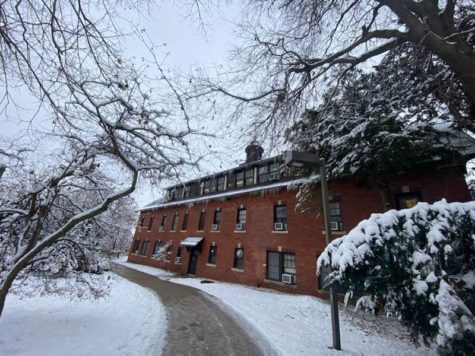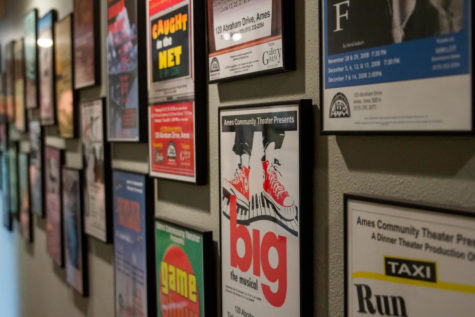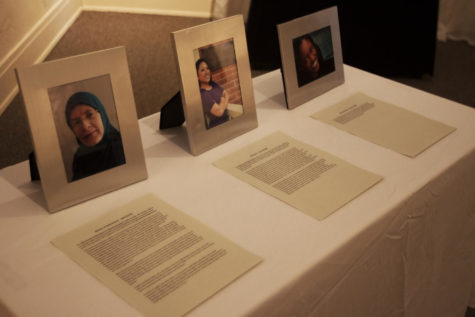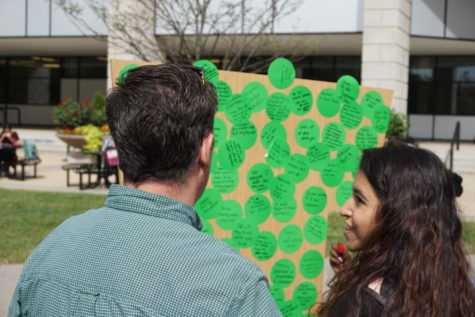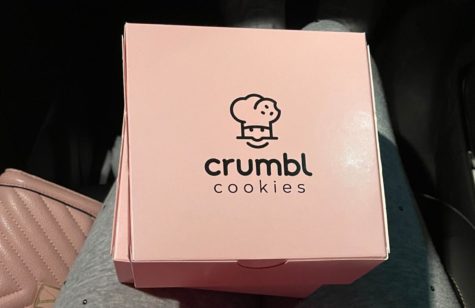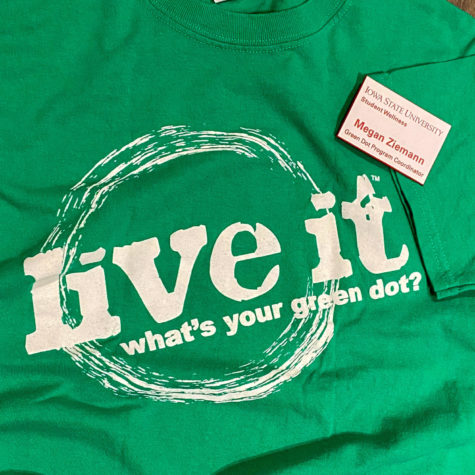The evolution of Campustown
October 21, 2010
Currently, Campustown consists almost completely of three things: bars, restaurants and tattoo parlors. Need a bite to eat after class? Head to Campustown. What about a place to unwind after a long week’s work? Welch Avenue is your new best friend. But what if you want to go to a new movie, go shopping or run everyday errands? Campustown would probably be the last place you think of.
However, not too long ago, Campustown offered all of these things, plus much more. Al Thompson, the original owner of The Head Shop, located on Welch Avenue, lived in Ames from 1968 to 2005. He recalls many of the businesses and activities that used to take place in the area, and explains that Campustown was “family-run and an inviting place.”
What did Al Thompson do in Ames?
Thompson moved to Ames in 1968, after attending barber school in 1967. He spent the majority of his time in Ames working in Campustown. He first worked at a couple of barbershops in Ames, before opening and owning The Head Shop, which is still present today. During his years in Ames, Thompson was very familiar with, and spent a good amount of time in the area.
What were the businesses like in Campustown?
Unlike today, Campustown held businesses for the community’s everyday activities. The focus was not just solely on the students, but the Ames community as a whole. Throughout the years Thompson spent in Ames, many businesses came and went. Along with bars and restaurants, Campustown was filled with everything from banks, shoe repair shops, clothing stores, dentist offices, hardware stores and even a pipe shop.
“There were boutiques and shops for women, stores filled with men’s clothing and many other things. [Campustown was] where people would come. It was a community,” said Thompson.
What were the popular restaurants?
There were many restaurants and cafes in Campustown, just like there are currently. Popular places included a variety of pizza places, Ted’s Café, L-ways Café, a barbecue restaurant and a Chinese restaurant. Thompson explains that L-ways Café, previously located on Lincoln Way, was especially popular. Thompson remembers it was common to find professors in Campustown at a cafe, getting coffee or lunch in the afternoon or in between classes.
What were the popular bars?
During Thompson’s early times in Ames, there were not nearly as many bars in Campustown as there are now. However, there were some. Popular bars that Thompson can recall such as Pizza Den, Lucky Q, People’s and The Cave-In, along with a few others throughout the years. It was common for bars to have beer, bar food and occasionally pool tables.
“The Pizza Den was the main place to go to get a beer for awhile, you could also get sandwiches and order pizza,” Thompson said, “At night, Welch Avenue was the hangout, and people would go around the corner to Lincoln Way and get the best pizza in town.” The popular pizza joint offered large pizzas for $2.97.
What was the most popular drink?
Thompson explained that during his time in Ames, the main place to buy a beer was Pizza Den. It seems that beer was the drink of choice.
“[The bars] had beer, but no mixed drinks. There might have been a few wine coolers,” Thompson said. He also explained that when the Cave-In opened, he believes they had one of Budweiser’s top counts in the Midwest for a period of time.
What was the atmosphere of Campustown?
The recurring theme Thompson continued to mention about Campustown was that the community felt like a family.
“Sundays after church, the L-Way Café would have a buffet. The place would be packed. It was all very family-oriented,” Thompson said. Campustown was a place for running errands, eating, socializing and living.
“There were professors that lived along Welch Avenue. There were many very charming homes,” Thompson said. Altogether, he described it as a very “civilized part of town.”
What did people do for entertainment?
Along with the popular bars and shops along the streets of Campustown, were also a couple of popular movie theaters. The Varsity Theater and the Ames Theater, both on Lincoln Way, were hot spots for college students and community members on nights and weekends.
“They were old-fashioned and really just wonderful theaters,” Thompson said.
Eventually, Welch Avenue took a turn from shops and thriving everyday businesses, to mostly restaurants and bars. Thompson recalls the area going from “no partying,” to “hundreds, maybe even thousands of kids out at night.” The Campustown he remembers was a community that he believes cannot be recreated.
“Everyone was a big family. I made tremendous friends, and I miss the culture of Ames, Iowa. It is a great place,” Thompson said.







